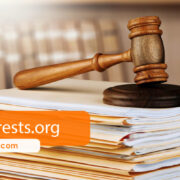Are you a landlord looking for new tenants? If so, you need to be sure to screen them carefully. There are many things to look for when screening potential tenants, and if you miss any of them, it could cost you in the long run. You can learn about the regulations and laws about renting out the property, on this website: www.lunaticconstruction.com
Table of Contents
1) Credit Report
When evaluating a potential tenant, the first thing you should check is their credit report. You can use this to determine if they have any outstanding debts or bad habits that could harm your property. For example, someone who has a history of late payments may not pay rent on time either. You can get a credit report from one of the three major credit bureaus: Experian, Equifax, or TransUnion. You can also order a credit report through Credit Karma or Credit Sesame services.
2) Background Check
A background check can help you find out if there have been any problems with the potential tenants in their past (e.g., evictions). You may want to consider having this done before signing up for a lease. This can be done by an independent service provider or through the local police department. However, keep in mind that each state has different laws regarding what information they can share about someone’s criminal record, so it may not always be available to landlords. Some companies will offer you a free background check if you sign up for their services.
3) Eviction History
You must find out if there have been any previous evictions on the record of potential tenants before signing a lease with them. You can do this by checking public records at city hall for any past incidents involving eviction notices filed against an individual in question. You can also check with previous landlords to see if the potential tenant ever had any problems paying rent or caused any damage to the property. Something to note is that even if a potential tenant has never been evicted, it doesn’t mean they won’t cause problems down the road. Always be sure to do your due diligence before making a decision.
4) Bankruptcy History
Bankruptcies on file for the potential tenant may indicate that they had financial problems in their past, leading to more issues later. It is important to find out if they could pay off their debts or if they still owe money due from bankruptcy proceedings. You can look up public records at your local courthouse to see if bankruptcy was ever filed against someone. Checking with previous landlords or credit card companies that the potential tenant may have had accounts with.
Remember: A history of bankruptcy doesn’t automatically disqualify someone from being considered as a viable candidate for renting an apartment or house.
5) Employment History
It’s also important to check if the potential tenant has a job. If they don’t have one, then it may be difficult for them to pay rent on time or at all. You should ask about their current employment status and how long they have been working there (if applicable). The longer someone works in the same job, the more likely they are to be reliable when paying rent on time.
If they don’t have a job, ask if they are looking for one. If so, what kind of work do they hope to find? This can help determine whether or not this person has any realistic prospects in terms of paying the rent and staying current with their other obligations (e.g., utilities).
6) References
It is always a good idea to get references from potential tenants. This can be anyone from their current or past landlords to people they’ve done business with in the past (e.g., creditors). Checking with these references will help you better understand what kind of tenant this person may be and if any potential red flags could affect your decision when choosing between them or another applicant.
You can also check with their friends and family members as well to see if they have any information about the potential tenant’s character traits or work ethic (e.g., whether they pay bills on time, etc.).
7) Pet Ownership
A pet owner can be a great tenant, but it is important to know if they are responsible pet owners. You’ll want to ask about their current pets. What kind of animal is it? How old is the pet? Who takes care of them while away from home (e.g., do they have someone who will come in once a week). If there are no current animals in the household, ask about their past experience with pets.
If the potential tenant has had problems taking care of animals or has a history of abusing them, it may be best to avoid renting to them. Pets can also cause damage to your property, so you’ll want to make sure that whoever you rent to is prepared to take care of their pet and is financially responsible for any damages that may occur.









Comments